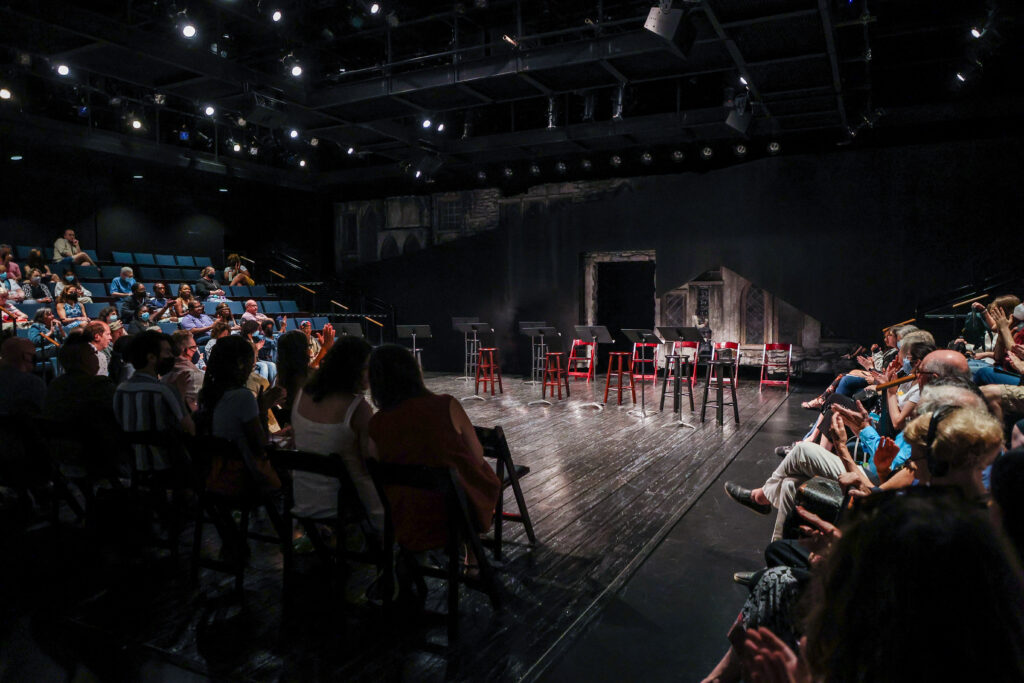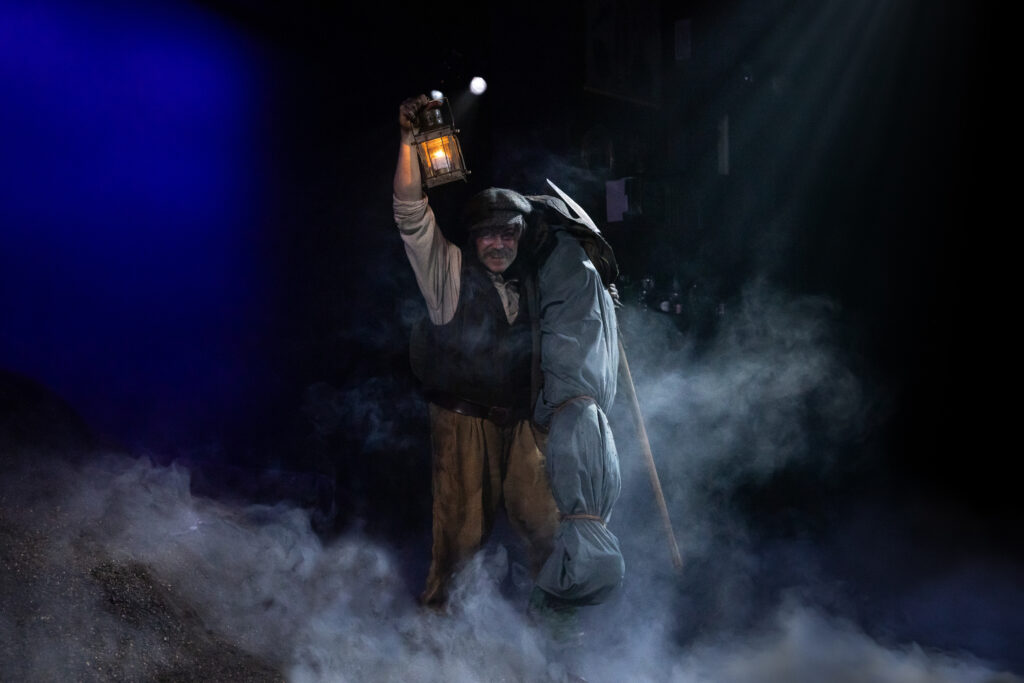Farce is a theatre style that can be traced all the way to ancient Greece. At the time, the new style of comedy (aptly called New Comedy) was created by Greek playwright Menander. His work was so influential, that it continues reverberating through our modern understanding of comedic writing. Before the works of Menander, a large majority of comedic plays parodied political figures, public events, and mythical stories. Menander introduced characters pulled from everyday life: the jilted lover, the jealous husband, the miserly old man, the clever servant, and more. Though most of Menander’s plays were lost to history, his influence survived in the highly popular comedies of ancient Rome, which expanded on these tropes and codified them into stock characters. We still recognize many of these stock characters today—in classic plays like The Servant of Two Masters (which you may remember from the Alley’s 2022-2023 season), in more contemporary comedies like Ken Ludwig’s Lend Me A Soprano (also recently seen on the Hubbard stage), and even in modern sitcoms.

There are many ways to trace the lineage of modern farce, and in truth, there’s no single point of origin. But it’s undeniable that French comedy holds perhaps the strongest influence in our modern idea of farce. By the late 19th century, French playwright Georges Feydeau cemented our idea of the modern farce, with plays like A Flea in Her Ear and The Dupe. In writing these plays, Feydeau condensed, concentrated, and heightened the everyday antics at the heart of the New Comedy, into a manic exercise of misunderstandings bordering on the absurd. Like Menander’s original plays, Feydeau often centered on romantic relationships and infidelity, resulting in a scandalous (and hilarious) new genre referred to as bedroom farce.
In a sense, Noises Off is the quintessential bedroom farce. In fact, it’s almost a parody of the genre; it focuses on a group of actors performing in a fictional farce known as Nothing On!, whose offstage relationships mirror (and sometimes top) the ridiculous chaos of their onstage counterparts. In this way, Noises Off is both a farce and a commentary on farce. It’s a play that acknowledges the absurdity of the genre, but simultaneously reaffirms this absurdity by concluding that it is part of life both backstage and onstage. Though on the surface Noises Off may seem quite silly, it’s undoubtedly one of the most technically complex plays in the modern canon. As in all farces, Noises Off succeeds not because of its absurdity, but because of its striking ability to remain grounded in a strong internal logic, in which the various characters all operate with their own unique sets of motivations. This is the genius of Noises Off, and why it has endured as a shining example of modern farce; as in the original New Comedy, Noises Off centers on characters that are recognizably human, thrust into an impossible situation.
Previews for Noises Off begin September 27!








